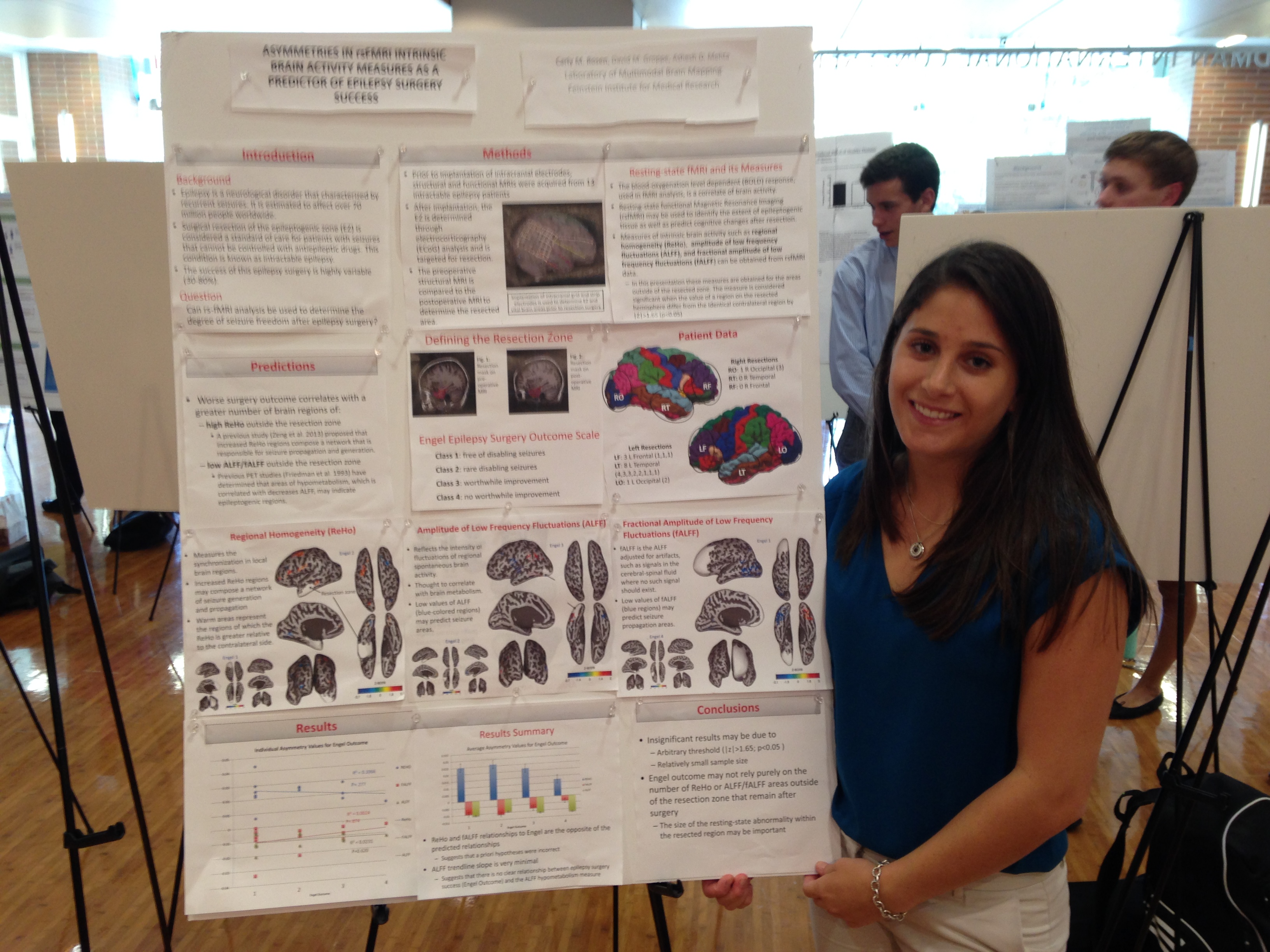The last day of my epilepsy research internship with the Feinstein Institute for Medical Research concluded with the poster presentation. Over 100 Feinstein summer interns displayed their various projects on 30X40 inch poster boards. Since I did this internship last year I knew what to expect and was fully prepared for the questions I was asked. . As I mentioned in my first post, this project asked a similar question as my project from last year. I was investigating a new method for predicating the success of epilepsy resection surgery sing fMRI analysis. Since my project is complex I am not going to go into the details of it, but I will post my powerpoint presentation here for anyone who is interested.

It is always frustrating and disappointing to find that all of the data collection, analysis, and hard work put into this project ended up being insignificant. (Data is considered insignificant when the p value that reflects the probability that the results are due to chance alone is greater than 5%). Another researcher in my lab told me that 80% of science research are failures. Unfortunately, we, as students, don’t learn about the failures and so it wasn’t a reality for me until experiencing it for myself. Furthermore, a failure doesn’t signify the end of that topic of research. It opens doors to new ways of thinking and organizing and can prevent other researchers from repeating your experiment and wasting time. This is an important lesson for me to have learned and for others doing research to grasp. Although I did not obtain clear or significant data this summer, I am still proud of my work and hopeful that it could be of use to the other members of my lab. Also despite obtaining insignificant data, I have learned a lot about the science research process that I can carry with me throughout my research career. I am going to be joining a cognitive neuroscience lab at Tulane and I am going to take the skills I have learned, from matlab to to interacting with human subject, back with me. I would love to learn more about the different methodologies and interests in the field of cognitive neuroscience since my lab focused primarily on epilepsy. I am sure that my knowledge will be greatly expanded when I join the lab at Tulane.
I truly enjoyed my experience at the Feinstein this summer. For anyone who is interested in this program I suggest that they research the different fields of work and the interests of the scientists and contact the ones that seem most interesting to you. When doing research it is important to be interested and passionate about the topic of your research.
In terms of my ideologies, not much has changed. My internship was not gender oriented and so i did not encounter these type of issues much during my time. I did notice an equal number of female and male doctors. However, I spoke with my peers about how patients will often trust a male resident over a female physician. This fact did bother me but I understand that as time goes on this will no longer be the case. Time will change this being as there is a higher percentage of women graduating from college and pursuing medical school, especially compare to previous decades.
